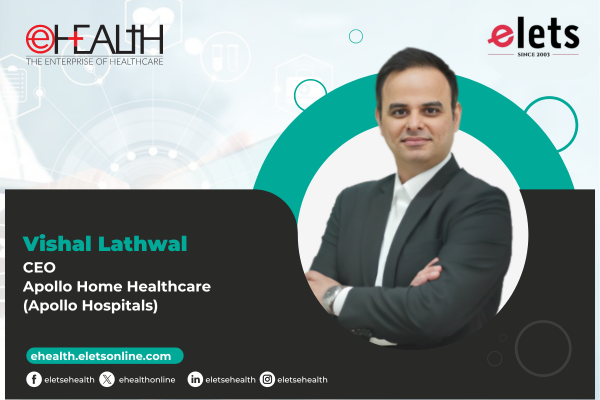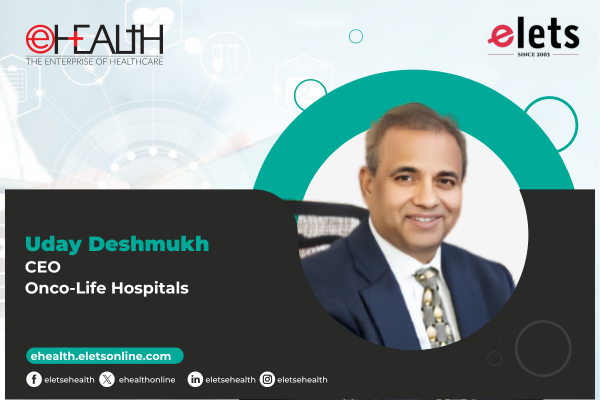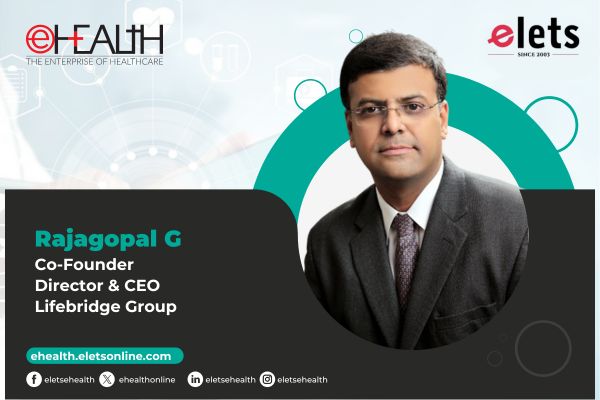
With the growing significance and demand as the population increases, the Indian pharmaceutical industry has several challenges to combat. Disruption on the supply chain front is one of the biggest challenges for pharma players shares Deepa Param Singhal, Vice President, Cloud Applications, Oracle with Garima Pant of Elets News Network (ENN). Edited excerpts:
What are the factors driving the growth of the Indian pharma & healthcare industry?

The Indian pharma and healthcare industries are expanding rapidly and showing strong momentum due to a variety of reasons and the pandemic has accelerated this growth. According to the IBEF report, the Indian Pharmaceutical industry is evolving at a robust rate and is ranked third regarding pharmaceutical production by volume growing at a CAGR of 9.43 per cent over the past nine years. Another report by IBEF states that the Indian Healthcare industry is witnessing tremendous growth attributed to the country’s rising income, better health awareness, and wider access to health insurance, and is expected to reach US $372 billion by the end of the current year.

There are some significant and unique trends that are driving the growth of the Indian healthcare and pharmaceutical industry. The pandemic has triggered numerous changes, the first being a shift in people’s perception and knowledge of medical services and healthcare programs, and they are now more involved in the treatment process. Secondly, the teleconsultation model has become the preferred mode of communication and is driving current healthcare processes. Concepts like e-health and teleconsultations have created numerous opportunities to bring flexibility and ease of communication. Thirdly, the emphasis from government, as well as private players on digitalisation of the industry is revolutionising the healthcare and pharma industry and propelling it forward by unifying the data and streamlining the internal processes with automation.

The rapid increase in technology augments risks. What is the biggest challenge faced by the pharmaceutical industry today?

With the growing significance and demand as the population increases, the Indian pharmaceutical industry has several challenges to combat. These challenges pertain to supply chain disruptions, the need for a qualified workforce, workforce optimisation, the collection and analysis of massive amounts of data, and the need for agility and transparency.
For instance, disruption on the supply chain front is one of the biggest challenges for pharma players. Post-Pandemic, the healthcare & pharmaceutical industry has realised the adversity of the traditional supply chain models and the need for an integrated supply chain that is better equipped to coordinate with logistics and connect the stakeholders with ease and transparency. Digitisation of the supply chain model is critical for firms working in the pharmaceutical space to ensure the timely delivery of services in a vast country like India with wider needs.
Technology has opened new avenues for the industry, but it has also made it fast-paced and created a bigger playing field for the supply chain. It has made it essential for organisations to scale and fast pace their operations.
The adoption of smart technologies like Al/ML, cloud, and other emerging technologies within healthcare and pharmaceutical organisations is becoming critical for the industry to tackle these existing challenges and create much more sustainable operations.
How is cloud computing transforming, supporting, and enabling healthcare providers as they cater to the massive Indian population?
With the growing population, there is a severe burden on healthcare and pharma providers to penetrate the rural population with drug and healthcare delivery. As manual processes slow down operations, the need to make healthcare operations automated, scalable, fast, and agile is critical for healthcare organisations.
Emerging technology-equipped solutions are assisting organisations to address these challenges and helping them improve quality, accessibility, and affordability by reducing manual processes and providing a unified platform to oversee and deliver quality patient care to the massive Indian population.
With cloud capabilities, organisations are providing better communication between healthcare professionals, improved medical safety, reduced medical errors, and better accessibility to medical information. The automation of internal manual processes with cloud-enabled solutions is introducing new opportunities and driving accelerated operational capabilities for healthcare organisations. Automation of processes essentially serves as a supporter for the sector, freeing front-line workers from time-consuming manual processes and allowing them to devote more time to patient care. With cloud enabled solutions, it is easier for organisations to enhance all their internal and external processes. Additionally, cloud computing helps organisations in managing and upskilling their workforce and preparing them for new techniques and approaches in the highly dynamic environment.
Digitalisation, Big Data, and Artificial Intelligence accelerate transforming the pharmaceutical industry and enable companies to improve drug development and patient care. How are healthcare demands and new technologies transforming the pharma supply chain?
The pandemic has triggered significant changes, completely transforming the way the healthcare and pharma industry operates. Given the large operation field, complex infrastructure, and large populations, challenges for healthcare and pharma organisations are even more difficult to overcome. The incorporation of emerging technologies such as Artificial Intelligence, Cloud Computing, Machine Learning, and Data Analysis into the pharma system is significantly contributing to the sector’s much-needed scalability and flexibility. Integration with technology has opened doors to upscale patient care and drug development. Automation has made internal processes hassle free and digital infrastructure is paving the way to fast and timely delivery of services. As organisations embark on their digitisation journey, the adoption of enhanced solutions with embedded technologies like AI, ML, and Data Analysis is driving their journeys.
With the rapid expansion and the compromised efficiency of traditional supply chain services, organisations are looking for alternatives. Here, cloud computing is serving as a supporter for pharma players. Cloud SCM for healthcare is efficiently helping firms to guide them through the digital supply chain model and provide a unified platform to oversee all the endto-end logistical operations. With fierce competition in the market, the quest to cut costs and efficiently develop drugs is driving the industry. Hence, the adoption of cloud-based technology is turning out to be the differentiator for the success and ultimately improving the pharmaceutical and healthcare infrastructure of the country.
Could you elaborate on the recent healthcare announcements and their impact on the development of the sector?
Integration of technology with healthcare infrastructure is creating an enormous scope of efficiency, and market trends indicate that both health and pharma providers are realising this and hence increasing their cloud investments. Oracle has been a technology provider to various healthcare and pharma providers like Apollo Hospitals, Indira IVF, Omega Healthcare, Aurobindo Pharma, Shri Ganga Ram Hospitals and many more. Considering our experience in the industry, we constantly strive towards introducing new and advanced solutions. With our industry research and analysis, we realised that in the current scenario, healthcare industry needs specialised custom built solutions to effectively manage their operations. After recognising the challenges, we have announced the availability of new industry-focused solutions at our flagship event Oracle Cloud World event (October 17-22,2022), Human Capital Management for Healthcare, Enterprise Performance Management for Healthcare, and Supply Chain Management for Healthcare as part of our existing applications portfolio with personalised features for the healthcare sector.
As the adoption of cloud-based solutions is becoming a norm, we have strived to deliver custom-built solutions within our applications portfolio for the healthcare sector to drive efficiency and growth. With the Supply-Chain Management for healthcare solution, we aim to support the unique requirements of healthcare organisations by automating processes, enhancing visibility and transparency, and optimising planning across the supply chain. Similarly, HCM for healthcare benefits organisations with employee experience, upskilling, and people management. Our EPM for healthcare solutions caters to healthcare organisations with better planning and management of their internal processes. Organisations can optimise their internal strategies in the best possible way and leverage innovative technologies to improve insights, cut costs, and improve patient care with these solutions.
Be a part of Elets Collaborative Initiatives. Join Us for Upcoming Events and explore business opportunities. Like us on Facebook , connect with us on LinkedIn and follow us on Twitter , Instagram.
"Exciting news! Elets technomedia is now on WhatsApp Channels Subscribe today by clicking the link and stay updated with the latest insights!" Click here!
















